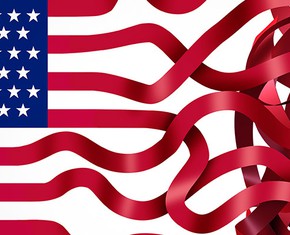The views expressed in our content reflect individual perspectives and do not represent the authoritative views of the Baha'i Faith.
On the day I turned 18, I went down to the Post Office like the law says all American males must to register for the military draft. I filled out a small card and handed it in. A year later, I went to war.
When people learn I’m a veteran and say, “Thank you for your service,” I usually reply, “I didn’t go voluntarily.”
America’s conscription policy — the mandatory drafting of young men into the military against their will — offered me only three choices: the Army, prison, or flee the country. As a Baha’i, even though I opposed the war, I obeyed my country’s laws, applied for conscientious objector status so I wouldn’t be required to kill anyone, and went to war in Vietnam without a weapon.
I reached that very hard, painful conclusion, after much meditation, consideration, and prayer, primarily because Baha’u’llah, the prophet and founder of the Baha’i Faith, said “to be killed … is better for you than to kill:”
It is clear and evident that the one true God – glorified be His mention! – is sanctified above the world and all that is therein. By “rendering assistance unto God”, then, it is not meant that any soul should fight or contend with another. …
Such is the true meaning of rendering assistance unto God. … Know ye that to be killed in the path of His good pleasure is better for you than to kill.
With this guidance from my Faith, coupled with my experiences in combat, I’ve long worked as an advocate for peace, demilitarization, and doing everything we possibly can as a society to diminish or finally end war. With those goals in mind, this series of essays will examine the controversies around conscripting young people into the military, especially women; and explore some of the remarkable Baha’i principles and concepts for dealing with these life or death issues.
In the United States, we haven’t had an active military draft that conscripts young men since 1973. During the 1960s and early 1970s, the draft and the war in Vietnam had threatened to literally tear the country apart, and finally, America’s political and military leaders realized they needed to stop drafting millions of young men for needless wars, or risk their entire careers and the fate of the institutions they ran. So the draft stopped as the Vietnam war wound down, but today the law still requires 18- to 26-year-old males to register. When they don’t, the penalty is five years in prison.
Here’s the latest major news on that male-only draft, though: the American Civil Liberties Union, representing two men and a group called the National Coalition for Men, has challenged the male draft registration requirement in court as “one of the last sex-based classifications in federal law.” In 2019, a Texas U.S. District Court judge ruled the male-only Selective Service draft law unconstitutional — on the basis of sex discrimination. Now, that decision has been appealed, and the United States Supreme Court is currently considering whether to rule on the case. If they concur with the judge in Texas, the United States could immediately require 18-year-old women to register for the draft, too.
The question currently in front of the Court seems quite fundamental: Should young women be required to register for the draft, and potentially be conscripted involuntarily into the military, the same as young men?
What do you think? Would you like to see women drafted along with men? Should women have to give a period of service to their country the same way men do? While this may seem academic right now, with the draft currently inactive in favor of an all-volunteer military, it could change very quickly if a war broke out.
Certainly some of the world’s nations do conscript women — Israel, for example, requires all Jewish citizens over 18 to undergo military service, regardless of gender, for at least two years. At least three other countries in the world currently draft women: the Netherlands, Norway, and Sweden. Several more nations have laws that allow the conscription of both men and women —¸ China, Eritrea, Malaysia, North Korea, Peru, and Taiwan among them.
On one side of this controversial equation, much of the world has begun to implement the Baha’i principle of the absolute equality of women and men, as Abdu’l-Baha explained: “Yet another of the teachings of Baha’u’llah is the equality of men and women and their equal sharing in all rights.”
On the other side of the equation, only women bear children — and biologically, we know that the peak child-bearing years coincide with the period of young adulthood when soldiers typically serve. Many women soldiers have combined military service with pregnancy and child-rearing, but doing so requires significant time away from any military duties, potentially compromising unit effectiveness and readiness.
Personally, and as a Baha’i, a period of mandatory national service for all young people seems like a productive, educational, and beneficial goal that could increase civic engagement and foster a sense of giving and serving others. However, I don’t believe that military service should be the only option — instead, in any national service program, young people should be able to decide how to serve their country and their world, consonant with their own conscience. In some countries similar systems have already been implemented, allowing the young to choose from several options that include caring for the sick and the elderly, educating children and youth, assisting in economically-disadvantaged areas, helping to mitigate the effects of climate change and species loss in the environment, and so on.
Just imagine it: a massive worldwide corps of motivated, enthusiastic, energetic, and resourceful young people in every country, ready to serve humanity in multiple ways — what couldn’t they accomplish?
















Comments
Sign in or create an account
Continue with Googleor